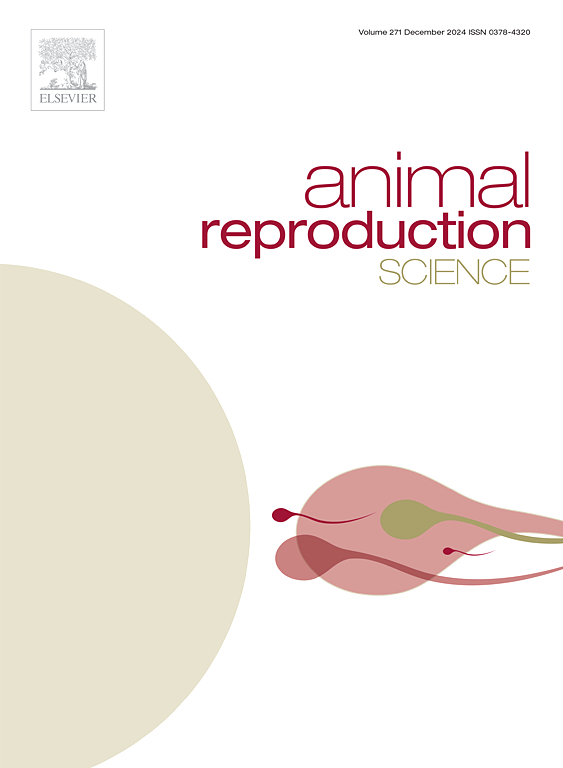Acute heat stress regulates estradiol synthesis in ovine ovarian granulosa cells through the SREBPs/MVK–LHR pathway
Published:19 November 2024
DOI: 10.1016/j.anireprosci.2024.107649
Yinxia Li, Fan Li, Shaoxian Cao
Abstract
The adverse effects of heat stress on reproductive performance of sheep are becoming increasingly severe. Previous research has revealed that heat stress decreases both cholesterol and estradiol content; however, regulation of estradiol by cholesterol and its regulatory mechanism under heat stress are unclear. Mevalonate kinase (MVK), a key cholesterol synthesis pathway enzyme, binds to the luteinizing hormone receptor (LHR; a key gene regulating hormone synthesis) mRNA. In this study, ovine ovarian granulosa cells (GCs) were used in an in vitro model. To elucidate the underlying molecular mechanism, immunofluorescence, quantitative reverse transcription polymerase chain reaction, western blotting, enzyme-linked immunosorbent assay, and an RNA electrophoretic mobility shift assay (REMSA) were used to investigate whether the decrease in cholesterol caused by acute heat stress resulted in a decrease in estradiol synthesis. Acute heat stress reduced the cholesterol content in ovine ovarian GCs, which transactivated the cholesterol synthesis pathway corresponding to the gene expression of sterol regulatory element-binding protein (SREBP-1A), SREBP-2, and MVK. Upregulated MVK increased the MVK–LHR mRNA complex, which caused LHR mRNA decay and downregulation, further leading to the downregulation of CYP19A1 and a decrease in estradiol. The cholesterol synthesis inhibitor, PF-429242, alleviated the decrease in estradiol synthesis caused by acute heat stress. Overall, acute heat stress caused a decrease in total cholesterol, which transactivated the expression of cholesterol synthesis genes, such as SREBP-1A, SREBP2, and MVK, increasing the MVK–LHR complex, downregulating LHR expression, and further decreasing estradiol.





